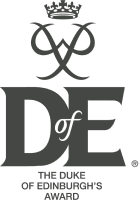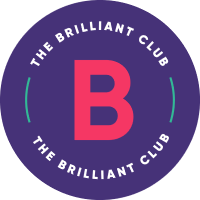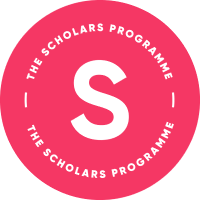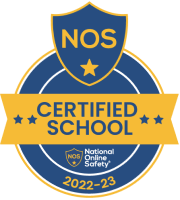This subject is part of the Faculty of Creative Arts
Our Head of Faculty is
Mr R Down rdown@tcat.school
Our subject teacher and email addresses is
Mrs J Fisher jfisher@tcat.school
Our subject intent
Is to encourage our students to develop their abilities and skills in all aspects of Performing Arts, which may lead to them discovering previously hidden talents!
We are fortunate to have a ‘black box’ studio space which enables us to explore a variety of genres and performance styles including devised work and improvisation.
We use a wide range of texts and practitioners across KS3, from classic to contemporary to embed (we hope) a life-long love of theatre.
Drama Skills.
Each year group explores the skills associated with Performing Arts at a level appropriate to their development. They will explore how to communicate meaning using their body, face and voice and how to use the stage to create an interesting piece of theatre. Performing Arts is a practical subject at KS3 and students are given the opportunity to develop skills in:
- Co-operation and team-work skills – Being tolerant of others when working together.
- Confidence & Communication – Developing vocal and physical skills, which allow them to approach a wide range of public speaking with confidence.
- Evaluation - Understanding the process of planning, rehearsing and reflecting on performances.
- Commitment and self-discipline - Encouraged and supported to excel when challenged, developing resilience and integrity.
- Creativity – Using imagination to create and communications character and plot.
- Empathy – Being able to put themselves in another person’s shoes.
We are lucky to have links with local theatres and theatre makers including The Conquest Theatre in Bromyard which is on our doorstep!
Curriculum Subject Offer
Year 7 Performing Arts
Subject intent
Introducing the subject to students who may have enjoyed some experience in Music or Drama during primary school but may have been limited by opportunity or resources available.
Lessons are arranged for 2 Performing Arts lessons a week for the period of a half term. One half term is based on Music and another is on Drama. In Year 7, students study 4 half terms of Music and 2 on Drama.
Topic Breakdown
Perfroming arts in on rotation with DT, Food and Art and these topics will be covered through thew year
| Module 1 | Module 2 | |
| Theseus and the Minotaur | Darkwood Manor |
Formative assessment will take place throughout the topic to secure knowledge and understanding and summative assessment will take place at the end of each half term. Pupil performances are recorded part way through the topic and again at the end so that they can see what progress they have made over time.
Performing Arts full Scheme of Work - Year 7
Year 8 Performing Arts
Subject intent
In Year 7, you learnt about Music Theory, practical performance skills on the keyboard, developed listening skills through a variety of listening exercises and developed your knowledge and understanding of cultural music through Indonesian Gamelan. You also developed independent and group work skills, helping to develop listening and leadership skills. In Perfroming Arts, you developed your understanding of basic drama skills as well as being introduced to Melodrama.
In Year 8, you will develop your keyboard skills further, developing your understanding of accuracy of pitch and rhythm, co-ordination skills and listening skills. You will also develop your cultural understanding of the slave trade through Blues music and how it has an impact on modern-day music. Vocal skills will be explored, developing an understanding of singing in pitch and in 4-part harmony before going on to study the origins of Reggae music. All topics will provide opportunities for students to develop group work and independent skills as well as leadership skills. You will look at a Drama text to improve your characterisation work as well as looking at physical theatre and improvisation.
Lessons are arranged for 2 Performing Arts lessons a week for the period of a half term. One half term is based on Music and another is on Drama. In Year 8, students study 4 half terms of Music and 2 on Drama.
Topic Breakdown
Perfroming arts in on rotation with DT, Food and Art and these topics will be covered through thew year
| Module 1 | Module 2 | |
| The Island | An Introduction to Mask |
Formative assessment will take place throughout the topic to secure knowledge and understanding and summative assessment will take place at the end of each half term. Student performances are recorded part way through the topic and again at the end so that they can see what progress they have made over time.
Performing Arts full Scheme of Work - Year 8
Year 9 Performing Arts
Subject intent
In Year 8, you developed your keyboard skills further, developing your understanding of accuracy of pitch and rhythm, co-ordination skills and listening skills. You also developed your cultural understanding of the slave trade through Blues music and how it impacted modern-day music. Vocal skills were explored, where you developed an understanding of singing in pitch and in 4-part harmony before going on to study the origins of Reggae music. Also in Year 8, you looked at developing your understanding of a set text in Drama as well as being introduced to physical theatre and improvisation skills.
In Year 9, students are introduced to the Drama text ‘Animal Farm’ at the beginning of the academic year. This gives students an insight into Drama text work as well as developing their historical knowledge and understanding of the ‘Russian Revolution’. Students then move on to ‘Keyboard Skills 5’ – Ground Bass, developing their understanding of playing polyphonic melodies on the keyboard, and gaining an insight into genre of Baroque music studied at GCSE level. Composition skills are also further developed by composing music along to a film, again an area covered at GCSE level. Keyboard Skills 6 then really challenges students of all ability, playing Ragtime music and pushing co-ordination skills through both polyphonic melodies and polyrhythmic co-ordination between 2 hands. Polyrhythmic skills are then culturally developed when students study and participate in African Drumming before moving into Year 10 after May half-term.
All topics will provide opportunities for students to develop group work and independent skills as well as leadership skills.
Lessons are arranged for 2 Performing Arts lessons a week for the period of a half term. One half term is based on Music and another is on Drama. In Year 9, students study 4 half terms of Music and 1 on Drama.
Topic Breakdown
Perfroming arts in on rotation with DT, Food and Art and these topics will be covered through thew year
| Module 1 | Module 2 | |
| The Exam - by Andy Hamilton | Theatre for Children |
Formative assessment will take place throughout the topic to secure knowledge and understanding and summative assessment will take place at the end of each half term. Pupil performances are recorded part way through the topic and again at the end so that they can see what progress they have made over time.
Performing Arts full Scheme of Work - Year 9
Year 10 Performance skills
Subject intent
In KS3, you developed your skills of performance, composition, creativity and storytelling through both Music and Drama.
Performance Skills takes all of these skills into account and develops your understanding of the Performing Arts world in more of a business context and prepares you for the Arts in the outside world. You will explore and develop your skills as a Performing Artist both individually and as part of an ensemble. You will explore the importance of unions, funding, different types of venues and staging, how to set up an event, marketing and many more areas, whilst developing an understanding of key terminology.
Lessons are arranged for 2 Performance Skills lessons a week for the period of a half term. In Year 10, students study 6 half terms of Performance Skills.
Topic Breakdown
|
Half term 1 |
Half term 2 |
|
|
Autumn |
Roles, responsibilities, skills and qualities in the performance industry | National organisations related to employment in the performance industry |
|
Spring |
Understand how performers are promoted | Production planning |
|
Summer |
Understand rehearsal processes | Understand and respond to a live performance production brief |
Formative assessment will take place throughout the topic to secure knowledge and understanding. You will be externally assessed through a written exam in the November or March in Year 11 whilst internal submissions of portfolio work will be expected to be completed by the May of your final year.
Performing Arts full Scheme of Work - Year 10
Year 11 Performance skills
Subject intent
In Year 10, you will have explored and developed your skills as a Performing Artist both individually and as part of an ensemble. You explored the importance of unions, funding, different types of venues and staging, how to set up an event, marketing whilst having developed an understanding of key terminology.
In Year 11, you will prepare for your external assessment before continuing to work towards your preparation for the internally assessed ‘Synoptic Project’. You will research, set up and prepare for a solo and ensemble performance, before evaluating your overall assessment.
Lessons are arranged for 2 Performance Skills lessons a week for the period of a half term. In Year 11, students study 5 half terms of Performance Skills.
Topic Breakdown
|
|
Half term 1 |
Half term 2 |
|
Autumn |
Planning of pre-production and promotion of live performance productions | Rehearsal and development of material as a performer for a live performance production |
|
Spring |
How to present live performance productions to an audience | Understand how to review live performance productions |
|
Summer |
Final checks before ‘Synoptic Brief’ submission. | N/A |
Formative assessment will take place throughout the topic to secure knowledge and understanding. You will be externally assessed through a written exam in the November or March in Year 11 whilst internal submissions of portfolio work will be expected to be completed by the May of your final year.
Performing Arts full Scheme of Work - Year 11
Within each subject we have our own specific personalised marking and feeback policy.
|
Arts and Creative Technology |
||
|
|
KS3 |
KS4 |
|
Verbal dialogue |
Teachers circulate with purpose, checking pupils’ work and collecting information on whole-class strengths, skill development, errors, misconceptions, knowledge gaps etc. The teacher adjusts their lesson accordingly. |
Teachers circulate with purpose, checking pupils’ work, providing feedback if appropriate and collecting information on whole-class strengths, errors, misconceptions, knowledge gaps etc. The teacher adjusts their lesson (or SOW) accordingly. |
|
Self/peer assessment |
Verbal or written feedback through strengths/targets and annotations. If written, peer and self-assessment should be completed in blue pen. |
Verbal or written feedback through strengths/targets and annotations. If written, peer and self-assessment should be completed in blue pen. |
|
Whole Class Feedback |
When pupils complete extended pieces of work, teachers will look through a sample of work from each class they teach and note pupils’ strengths and targets. Teachers will then use this information to provide whole class feedback on what pupils are doing well and how pupils can improve their work further. As this type of marking involves the teacher looking at a sample of work, the teacher will use a rotation system to ensure that the work of all pupils is looked at on a regular basis. Where books are not used, verbal responses from pupils or video evidence can be used. |
When pupils complete extended pieces of writing, teachers will read through a sample of books from each class they teach and note pupils’ strengths and targets. Teachers will then use this information to provide whole class feedback on what pupils are doing well and how pupils can improve their work further. As this type of marking involves the teacher looking at a sample of books, the teacher will use a rotation system to ensure that the books of all pupils are looked at on a regular basis. Where books are not used, verbal responses from pupils or video evidence can be used. |
|
Written comments |
Teachers within the department will either: 1. Check through the work of all pupils and use a marking code to indicate the strengths and targets of the work. The marking code will be shared with all pupils and pupils will be given precise instruction about how to improve their work. OR 2. Read through the work of all pupils and write a strength comment and target comment at the end of the piece of work. OR 3. Record evidence of work through suitable media, providing pupils with a strength and target comment relevant to the piece of work. SPAG Teachers will identify where pupils make errors in their spelling, punctuation and grammar and pupils will be given time in lessons to make corrections (by circling errors where SPAG mistakes appear). If several pupils in a class are making the same spelling, punctuation or grammar error then the teacher will address this with the class. |
Teachers within the department will either: 1. Read through the work of all pupils and use a marking code to indicate the strengths and targets of the work. The marking code will be shared with all pupils and pupils will be given precise instruction about how to improve their work. OR 2. Read through the work of all pupils and write a strength comment and target comment at the end of the piece of work. OR 3. Record evidence of work through suitable media, providing pupils with a strength and target comment relevant to the piece of work.
SPAG Teachers will identify where pupils make errors in their spelling, punctuation and grammar and pupils will be given time in lessons to make corrections (by circling errors where SPAG mistakes appear). If several pupils in a class are making the same spelling, punctuation or grammar error then the teacher will address this with the class.
Written feedback forms part of the module feedback process in vocational courses. This is intended to be summative for that unit/module but formative toward improvement in the following unit/module. |
|
Frequency of feedback |
Live feedback and responsive teaching will take place in most lessons where pupils have been asked to complete extended pieces of work. * Whole-class feedback will take place once a week. Peer/self-assessment When deemed to be the most effective method of assessing work produced in lessons Written comments will take place after between 10 and 15 lessons (around twice per term), as appropriate for the pace of the class. OR Once per module/rotation.
|
Live feedback and responsive teaching will take place in most lessons where pupils have been asked to complete extended pieces of writing. * Whole-class feedback will take place once a week. Peer/self-assessment When deemed to be the most effective method of assessing work produced in lessons Written comments will take place after between 10 and 15 lessons (around twice per term), as appropriate for the pace of the class. There may be several lessons where pupils do not write extensively. Instead lesson time will be used to: (for example) read and discuss the musical scores; annotate the text/diagrams; make notes about the set-works; complete short comprehension activities. |
|
Response to feedback |
When directed after marking/whole class feedback, pupils will be expected to make a response in blue pen OR Make media application of their feedback in their ongoing work. In some instances, pupils will be expected to put the title DIRT and either re-draft an entire piece of work or a section of the piece of work according to the teacher’s instructions. In other instances, pupils will be expected to apply their feedback in the form of transferable skills applied in a new task. This would be done in blue pen when relevant. In further instances, pupils may be asked to answer questions posed by the teacher. Responses to spelling mistakes include writing out misspelled words such as subject specific vocabulary or key words. |
When directed after marking/whole class feedback, pupils will be expected to make a response in blue pen OR Make media application of their feedback in their ongoing work. In some instances, pupils will be expected to put the title DIRT and either re-draft an entire piece of work or a section of the piece of work according to the teacher’s instructions. In other instances, pupils will be expected to apply their feedback in the form of transferable skills applied in a new task. This would be done in blue pen when relevant. In further instances, pupils may be asked to answer questions posed by the teacher. Responses to spelling mistakes include writing out misspelled words and listening to explicit teaching of spelling (etymology etc.). |
|
Summative assessment |
1 x formal assessment each half term or module rotation. A piece of extended work which is marked using comparative judgement on the No More Marking platform. Band boundaries are applied to the assessments once judged, as stated in the SOW. |
1 x formal assessment each half term. A piece of extended writing which is marked using comparative judgement on the No More Marking platform. Band boundaries are applied to the assessments once judged. This might be a practical piece or some written work, as stated in the SOW. |






